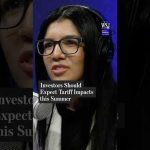Recently, a pivotal federal lawsuit was filed in New Jersey that could change the landscape of gun rights across the nation. The case, known as Padua v. Platkin, challenges the state’s blanket ban on firearm suppressors, a measure viewed by many as unconstitutional and an infringement on the Second Amendment rights of law-abiding citizens. This legal battle is being led by a coalition of veterans, gun owners, and prominent Second Amendment advocacy groups, including the National Rifle Association and the Second Amendment Foundation.
The plaintiffs, in this case, include three individual gun owners and several leading pro-Second Amendment organizations. They argue that New Jersey’s total ban on suppressors violates both the Second and 14th Amendments of the U.S. Constitution. According to their claims, suppressors, often inaccurately labeled as “silencers,” are legal in 42 states and have been around for over a century without historical prohibition. This resonates strongly with the Supreme Court’s ruling in New York State Rifle and Pistol Association v. Bruen, which mandates that the government prove any restrictions on gun rights are historically rooted. New Jersey’s law, as argued in the lawsuit, does not meet this stringent standard.
Existing national data support the need for suppressors from a safety perspective. Organizations like the CDC and OSHA recognize that suppressors are important for hearing protection. In most contexts, they merely reduce the noise of gunshots to levels comparable to that of a jackhammer, rather than making them silent as popular media suggests. For responsible gun owners, suppressors are not only a safety tool; they help minimize noise pollution, making shooting ranges more neighbor-friendly and improving the experience of hearing while hunting.
The personal stories surrounding this lawsuit are compelling. David Padua, a Marine Corps veteran suffering from significant hearing loss, is among those fighting for the right to own suppressors for self-defense and hearing preservation. His plight highlights how state laws can drastically undermine individuals’ rights to effective self-defense tools. Similarly, Michael Glenn, a former combat medic, and Brian Weber, a utility worker with a personal shooting range, have shared similar concerns about noise pollution and potential hearing loss. These individuals represent responsible gun owners who, despite their efforts to comply with federal regulations, are hindered by state-level restrictions.
The legal arguments put forth in Padua v. Platkin are broad and significant. The plaintiffs argue that suppressors are indeed arms that are commonly used for lawful purposes, thus making the ban unconstitutional. Furthermore, they seek to block the enforcement of this law permanently and hold the state accountable for abusing its authority. If the court sides with the plaintiffs, it could pave the way for similar suppressor bans in states across the country to be challenged effectively.
The outcome of this case has the potential to resonate well beyond New Jersey. It serves as a clarion call to all states that impose similar restrictions on Second Amendment rights. As the legal landscape continues to evolve, it is critical for supporters of gun rights to stay informed and engaged. The fight for Second Amendment freedoms is far from over, and Padua v. Platkin could become a monumental stepping stone in reclaiming those rights for responsible citizens nationwide. The energy surrounding this lawsuit exemplifies the collective determination to ensure that personal liberties remain protected and respected in America.




